Ata-ul-Haye Nasir, Al Hakam
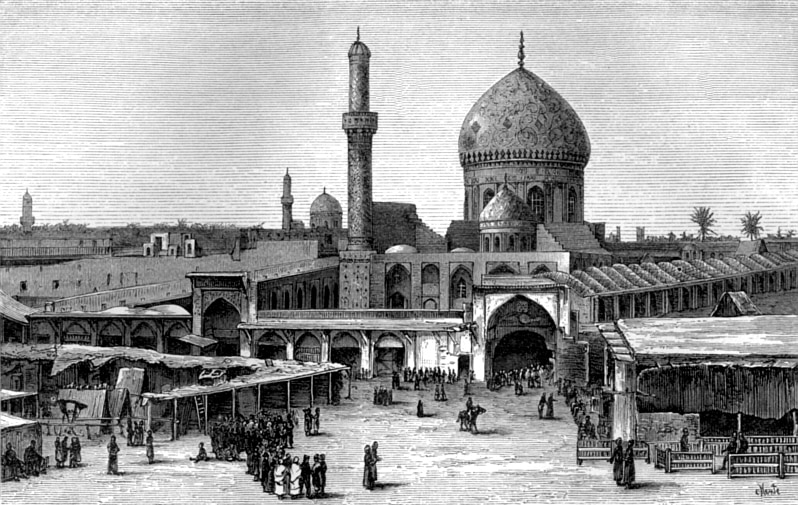
In 1941, during World War II, Iraq had to face severe turmoil when Rashid Ali al-Gaylani – former prime minister of Iraq (1892-1950), Mohammed Amin al-Husseini – Grand Mufti of Jerusalem (1895-1974), and like-minded people initiated chaos and disorder in the country. It was on 1 April 1941, when a revolt erupted against the pro-British government of Iraq, with support from the Axis powers during World War II. This is commonly known as the “Rashid Ali al-Gaylani coup” or the “Golden Square coup”. This situation endangered the safety and peace of the sacred places of the Muslim world. (A History of Jewish-Muslim Relations: From the Origins to the Present Day, [Ed.] Abdelwahab Meddeb and Benjamin Stora, Princeton University Press, 2013, pp. 349-356)
In light of these happenings, Hazrat Musleh-e-Maud, Mirza Bashir-ud-Din Mahmud Ahmadra, delivered a speech on the All India Radio Station, which was also broadcast from the Delhi and Lucknow stations.
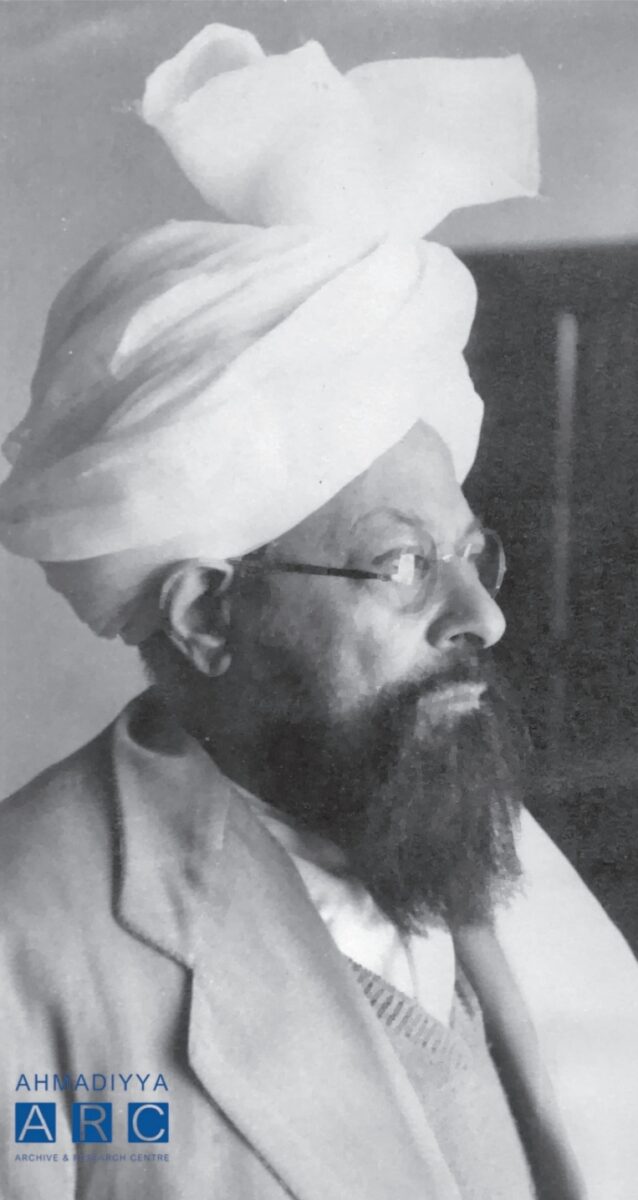
The Civil and Military Gazette announced under the heading “Broadcast on Iraq”:
“Hazrat Mirza Bashir-ud-Din Mahmood Ahmed of Qadian will broadcast a talk in Hindustani on ‘Iraq’ from All India Radio, Lahore, on Sunday, May 25, at 8:50 pm.” (The Civil and Military Gazette, 25 May 1941, p. 10)

Mentioning this speech, The Indian Listener (English Programme Journal of All India Radio) wrote:
“Among those who spoke on the various aspects of the Iraq problem were Hazrat Mirza Bashiruddin Mahmud Ahmad, Amir Jamaat-i-Ahmadya, Sir Abdul Qadir, Sir Sultan Chinoy […].” (The Indian Listener, 22 June 1941, p. 13)
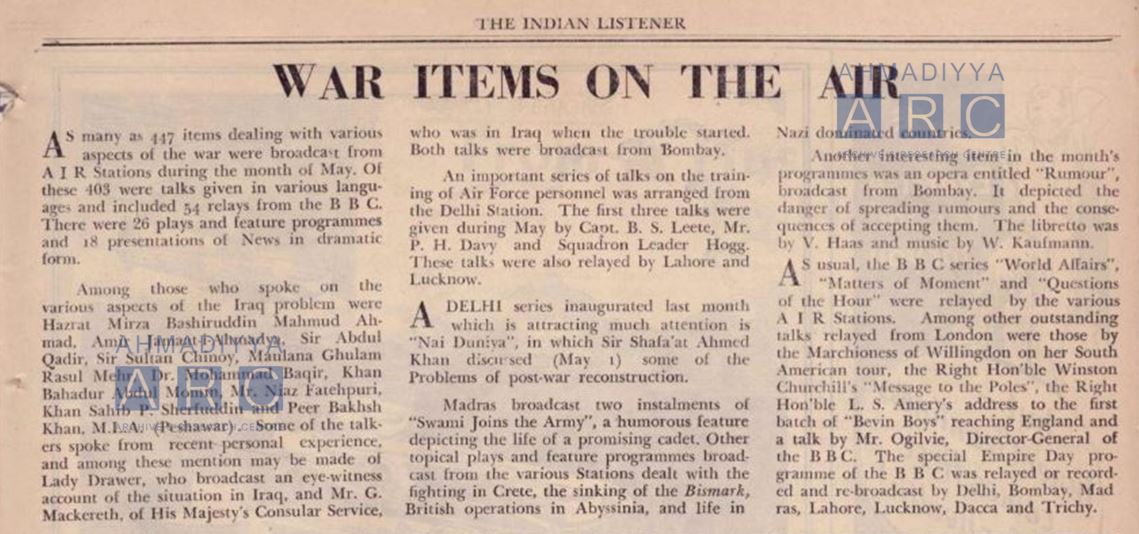
A newspaper, Riasat of Delhi, highly commended Huzoor’sra speech and explained how it was a better solution to this issue:
“The weakest aspect of a subjugated country or nation is that its people lack moral truthfulness and courage, and the characteristics of flattery, lies, and cowardness become more apparent amongst them. Whether Iraq’s Rashid Ali is in the wrong according to the British Government or the British public, or whether it is unreasonable for him to go to war with Britain, what cannot be denied is that he is striving for his country’s political freedom and it can never be said he is disloyal to his country or that he is a traitor. But look at the [moral] character of our subjugated country’s leadership and chiefs of its states that whoever speaks about the situation of Iraq, labels Rashid Ali as a traitor. Moreover, any leader who gives a statement about the war, commences it by declaring Rashid Ali as a traitor, and then proceeds with their statement. Due to the subjugated mindset, the [moral] character of these leaders and chiefs of states has degraded so much that they are considering the wrongful flattery [of the West] to be a good service to the country or government. On the contrary, in the presence of such an ignorant flattery by the country’s leadership and chiefs of states, the moral courage, great character, and honesty of the religious leader of the Ahmadiyya Jamaat of Qadian would be received with great interest and pleasure, which he had expressed during a radio speech last week.” (Riasat of Delhi, 2 June 1941, p. 10)
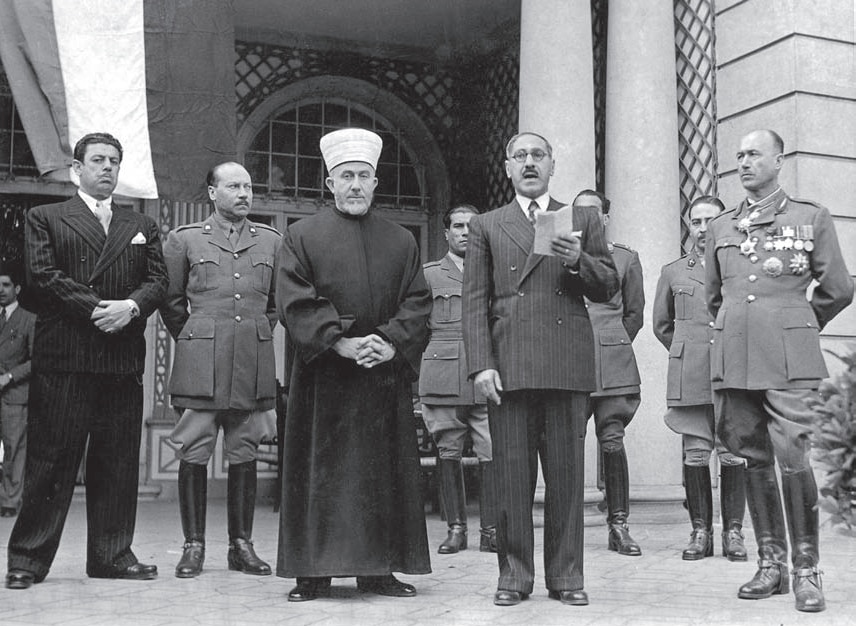
During his speech, Hazrat Musleh-e-Maudra said:
“The present unfortunate rising in Iraq is naturally causing deep anxiety to Muslims all over the world, including the Muslims in India. Baghdad – which is the Capital of this country, Basra – its main port, and Mosul – the centre of its oil wells, are names with which a Muslim becomes familiar from early childhood. The Abbasid period, with its great scientific and cultural achievements, is naturally treasured by the Muslims as a proud and pleasant memory; but Alif Laila, the book that is the best friend of children interested in the study of Arabic literature, has invested these ancient towns with a glamour all their own. The moment they close their eyes and give their imagination a little play, the thoroughfares of Baghdad, the lanes of Basra and the caravan sarais of Mosul stand before them, so vivid and lifelike as though all their lives they had lived among those scenes.

“Speaking of myself personally, I can say that in the days of my childhood, Baghdad and Basra had far more attraction for me than London and Paris; for, while the latter two were hardly more to me at that time than a couple of geographical names imprisoned in the cells of my brain, the former on the wings of my imagination seemed to float all over the world. The bond which sprang from the delight that tales about these cities gave to us when we were children, deepened when, on growing to maturity, we learnt of the great Imams in the realms of Hadith and Fiqh – Ahmad bin Hanbalrh, Abu Hanifarh and Abu Yusuf, of the great Sufis – Junayd Baghdadi and Shibli and Syed Abdul Qadir Gilani, and of a host of great scholars, historians, men of letters, statesmen and great kings – like Abdur Rahman Ibn Qayyim, Nizam-ud-Din Tusi, Al-Mubarraz Sebuah, Jarir and Al-Farazdak for literature, the great Harun al-Rashid and his equally illustrious son, Mamun. These are the gems produced by Iraq that still inspire our minds and fire our imagination.
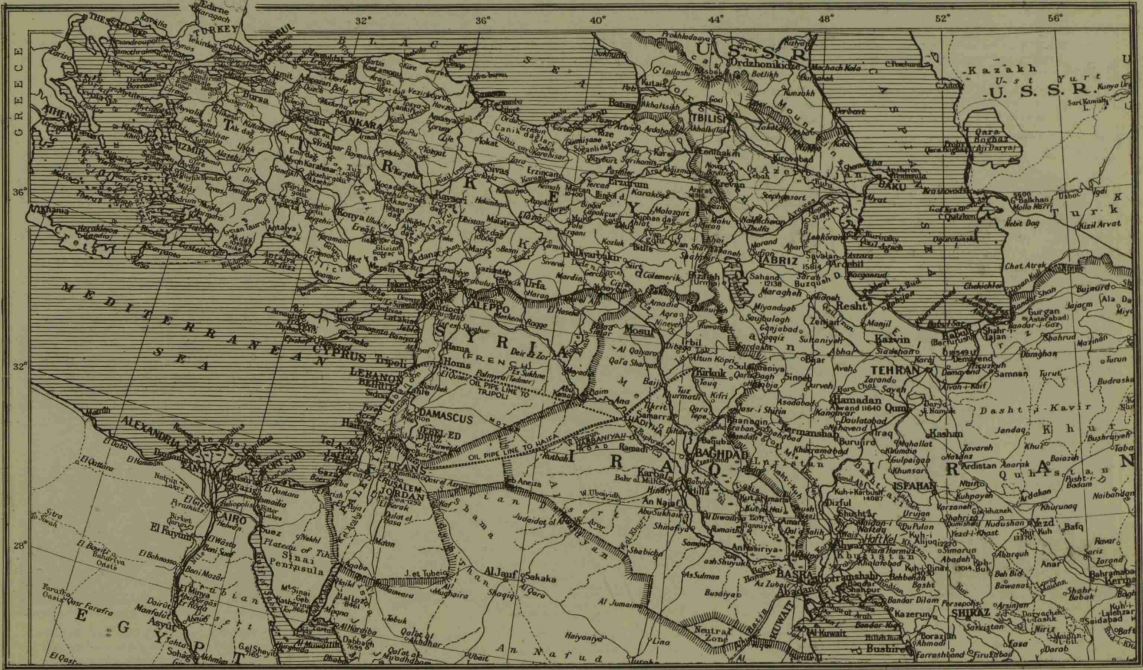
“When scenes and places associated with such treasured memories of a glorious past, became the scene of a most ill-advised political disturbance, how could the Muslims help feeling deep stabs of pain over it? When the sacred mausoleums over the remains of these heroes, doubly sacred to us because we are bound to them by spiritual ties as well, became exposed to the terrible destruction of a modern total war, how could we remain unconcerned!
“Iraq contains the sacred places of both the Sunni and the Shi‘a Muslims; moreover, this country is situated in the very heart of the Muslim world, its prosperity and peace are therefore the heart’s desire of every Muslim. But this dear land now lies exposed to the horrors of a war of which the devastation in other lands wrung our hearts even when there was no special tie between us and its victims. In the face of this peril, the Muslims cannot remain silent, and indeed, they are not silent over it. All over the world, they are giving expression to the deep anxiety gnawing at their hearts, and their apprehensions over this unfortunate situation are fully justified. For the war in which a decision had so far been expected in the African Sahara and in the waters of the Mediterranean shall have to be fought out now on fields where the ebb and tide of battle would flow in no man’s land over Muslim homes. Our mosques and the courtyards of our dwelling houses would now form the redoubts over which the war shall pour out all its fury.
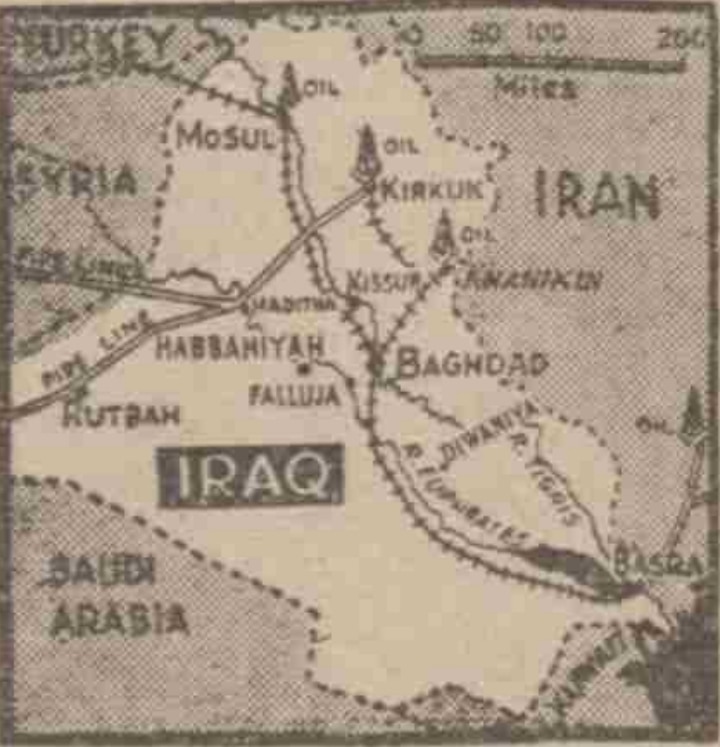
“It is painful to reflect that, but for a deplorable lack of foresight on the part of a few Iraqi leaders, it need not have been so. It is unfortunate that these leaders, ere they decided to raise this revolt, did not pause to take note of the fact that in the case of all those countries that Germany had so far overrun, she had not given freedom to any; that she had only clamped down her own irons on them and was holding them down. If Sheikh Rashid Ali al-Gaylani and his friends had not joined hands with Germany, the danger to the Muslim world need not have arisen.
“In consequence of this revolt, Turkey has been encircled; the war has been brought to the very door-steps of Iran; and as for Syria, that country now lies in the direct line of the conflict; Iraq has become the epicentre of the war; while, at the rate the storm moves, Afghanistan is not far out of its reach. The greatest danger, thus, lies in the fact that the furies of war are now hovering on the very borders of places that, to us, are dearer far than our own native lands, our lives and our honour. Our sacred places, which are guarded by no ramparts – which, as far as material means are concerned, have no defence at all, are now fully exposed to the danger. Those slender walls to which cling our hearts with inexpressible love, no matter where we are, now lie in the reach of dive-bombers and high explosive missiles, of which a single hit can shatter rock-like fortifications to the ground.
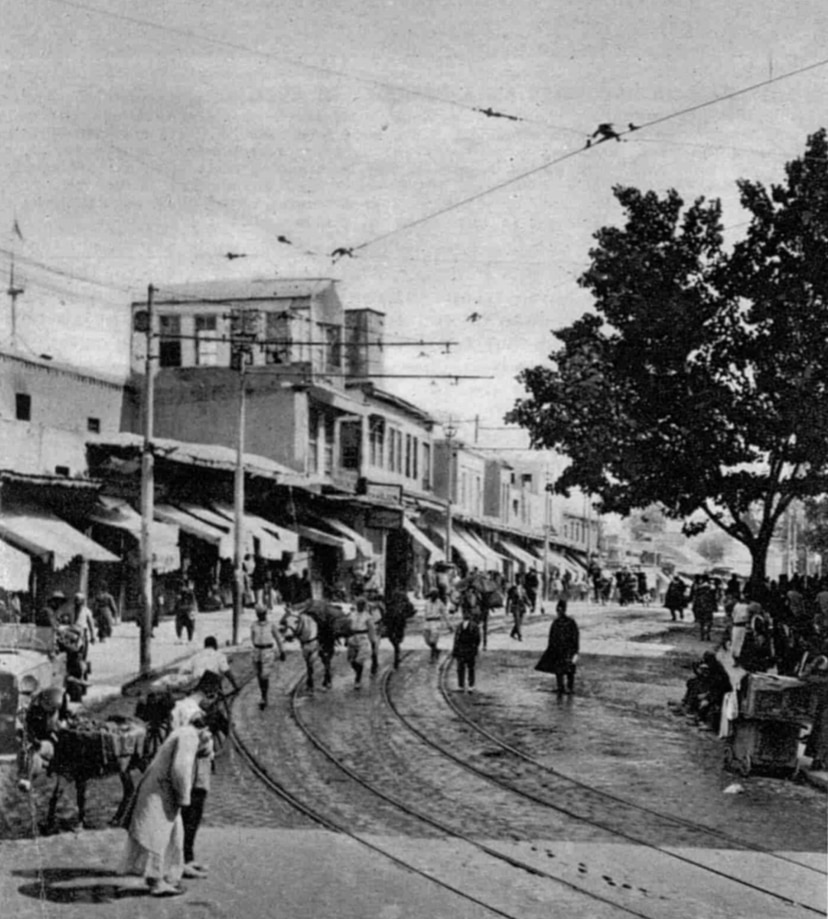
“All this has come to pass through a mistake on the part of a few of our own brothers; for, before the trouble broke out in Iraq, the war front was hundreds of miles away from these places. In these circumstances, it is the duty of each single Muslim to try to nip the mischief while it is still in the bud. There is still a chance for us to push back the theatre of war ere it has had time to develop fully, for German and Italian forces have not so far penetrated into Iraq in any great strength. Should the enemy succeed in gaining a surer foothold, our task would not be so easy, and the flames of war in one big leap would then spread all over the Arabian desert.
“This mischief cannot be adequately fought merely by heaping abuse on Sheikh Rashid Ali and the Mufti of Jerusalem: we cannot put out this fire by simply calling them traitors. I am not acquainted with Sheikh Rashid but I know the Mufti personally. [The Mufti had invited Huzoorra to a tea party at his home, on 2 August 1924, while Huzoorra visited Palestine in 1924. (Al Fazl, 4 September 1924, p. 3)] […]
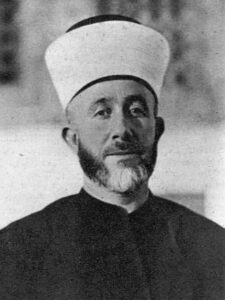
“The explanation of his hostility towards Britain should not be looked for in the supposition that he has been bought over by Germany. His opposition springs from the fact that he thinks that the undertakings given to the Arabs by the Allies in the course of the war of 1914-18 have not been duly fulfilled. If we persist in merely venting our wrath by calling these people names, those who hold them in esteem would only be angered thereby. […] Therefore, in order to safeguard from this possible but dangerous reaction the thousands and thousands of Muslims all over the world who think well of Sheikh Rashid Ali and the Mufti of Jerusalem and hold them in esteem, we should take care to keep our feelings in control. In all that we might say, we should be actuated only by a desire to see the situation righted: we should not let our feelings over the immensity of the issues at stake betray us into mere expressions of anger in terms of abuse.
“We should remember that all that is necessary for us to realise in connection with this rising is that this move on the part of Sheikh Rashid Ali and his friends has put into grave jeopardy the tranquillity and peace of the sacred places of Islam. We have no need to impute low and unworthy motives to the leaders of this revolt. We have neither the right to do so, nor can any good be expected from it. In this crisis, Muslims everywhere should unite in working for the speedy restoration of peace in Iraq”, and “this is the only way to keep the flames of war at a distance from Mecca and Medina, from Turkey, Syria, Iraq and Afghanistan.
“This is no time for indulging in controversies or recriminations: it is time for quick action. Every Muslim should, without loss of time, warn their neighbours of the danger that hangs over Muslim lands so that all should be ready to do their duty, and to make every possible sacrifice for the common cause.” Those who are not in a position to do anything to alleviate this chaos, “should bow down in prayer that God may be pleased to safeguard the peace and welfare of the Muslim lands, and to open the eyes of our misguided brothers so that they may themselves strive to undo the harm of which unfortunately they have been the cause.
“In my opinion, the trouble in Iraq has come not only as the sharp cut of a whip to rouse the Muslims alone to an adequate sense of the danger, but it is a cause for grave anxiety to all Indians in general, irrespective of class or creed, for this trouble has brought the war near to India. This country now is no more as safe as it was before. An army holding Iraq in its grip could easily march straight to India, either through Arabia or Iran. Therefore, in the face of this peril the people of India should rise superior to the animosities of their internal quarrels and unite in helping Britain to guard the country, as by doing so they would only be helping themselves.
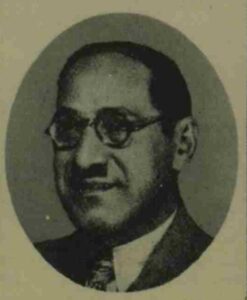
“Perhaps Sheikh Rashid Ali and his supporters think that during the war of 1914-18 the Arabs were assured that on the conclusion of the war, they would be helped in the task of creating an independent Arab State, but what actually took place was that Arab lands were parcelled out into four or five divisions; that Britain no doubt had given a measure of independence to Iraq, but the rest of the Arabs too had in no way been behind in point of sacrifices for the Allied cause. Should Britain undertake for the future to give independence to other Arab countries as well, then I am sure the Muslim world would strive as one man to keep their lands clear of war. The indirect gain therefrom to the British Empire, I venture to think, would not be insignificant.
“At the end of this war, the question should be settled not only of the independence of Czechoslovakia and Poland but of the Arab lands as well. Justice demands it: and I am sure that by honouring this requirement of justice Britain would become far mightier than before.” (The Review of Religions, Vol. 40, June 1941, pp. 218-223 [Edited by Al Hakam])

